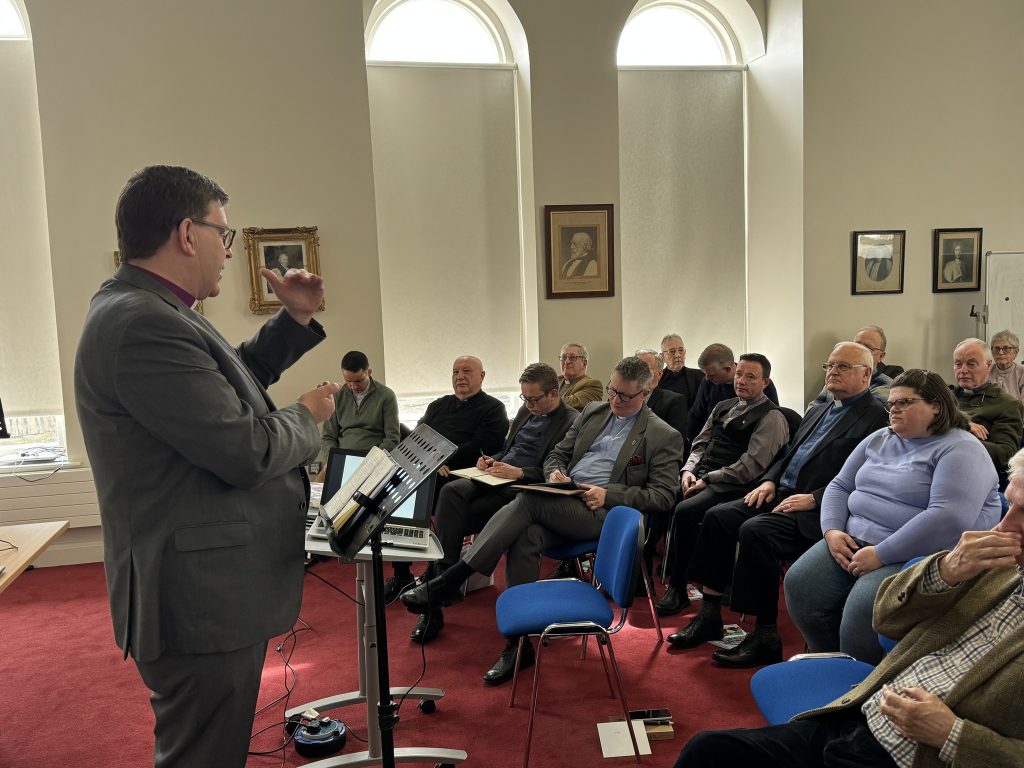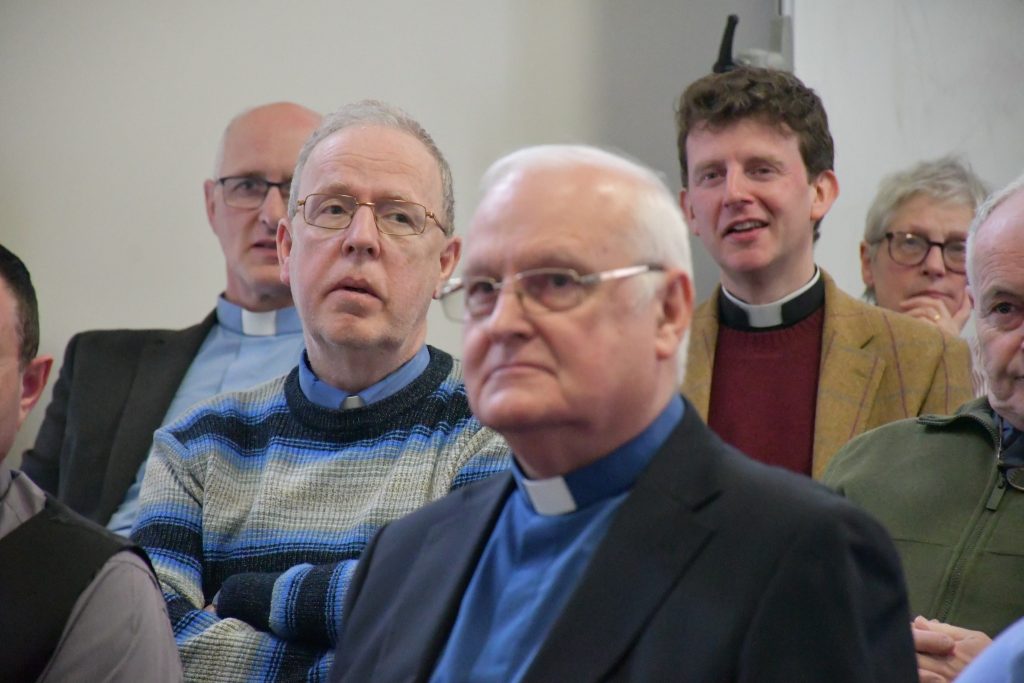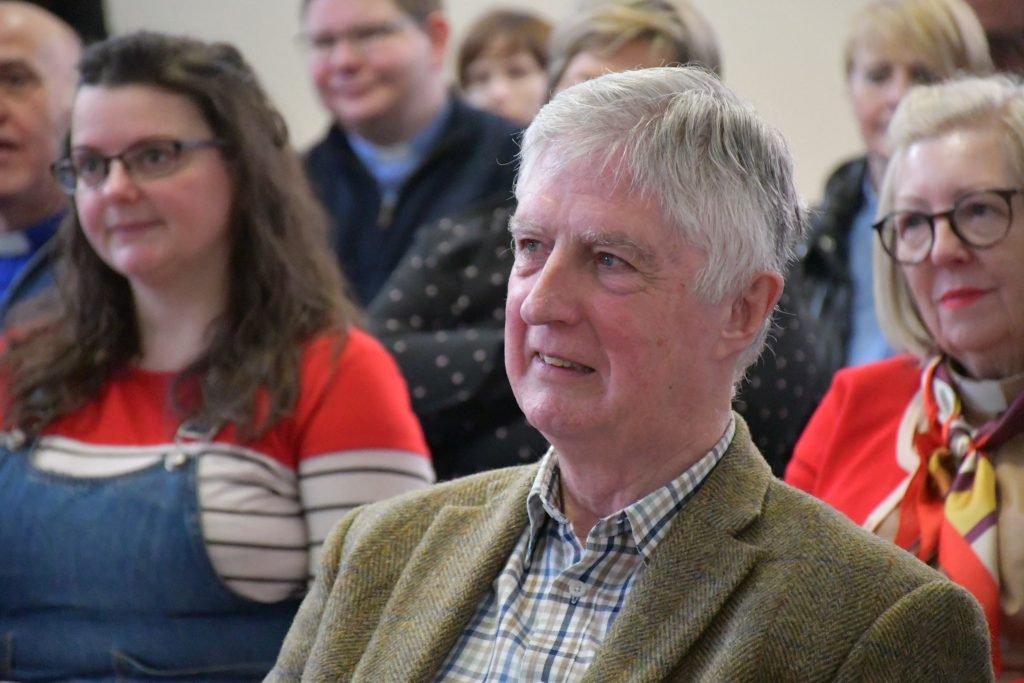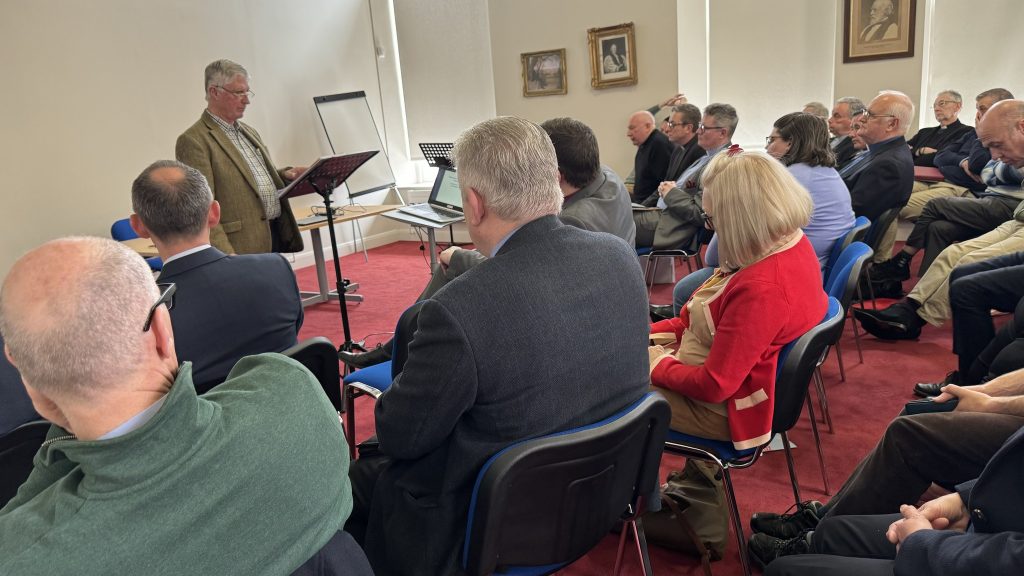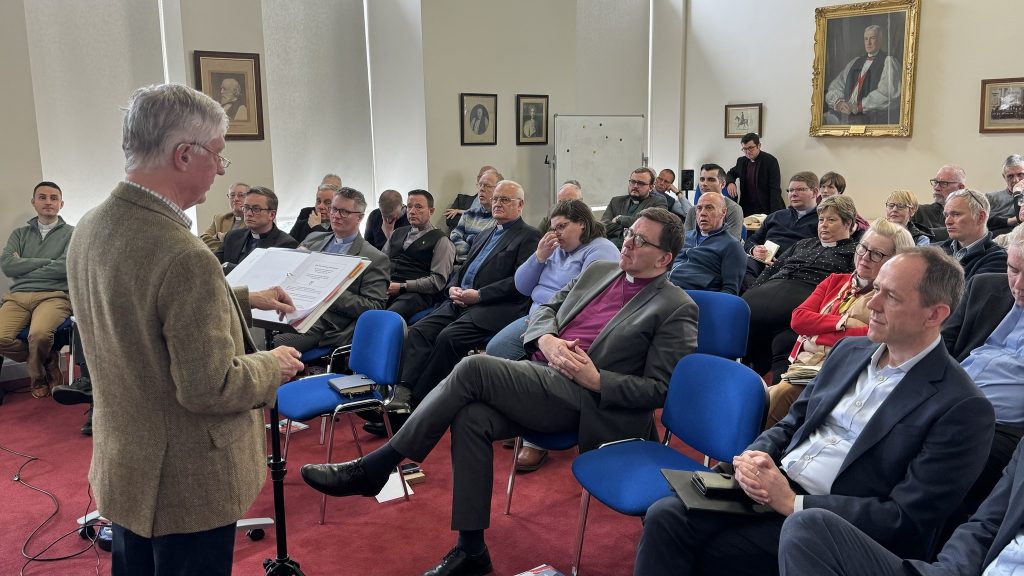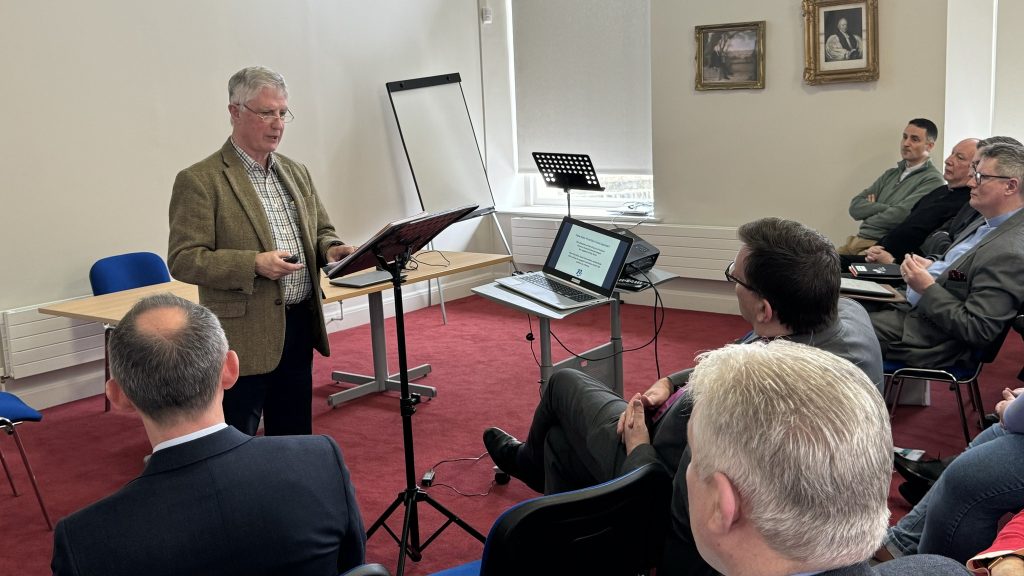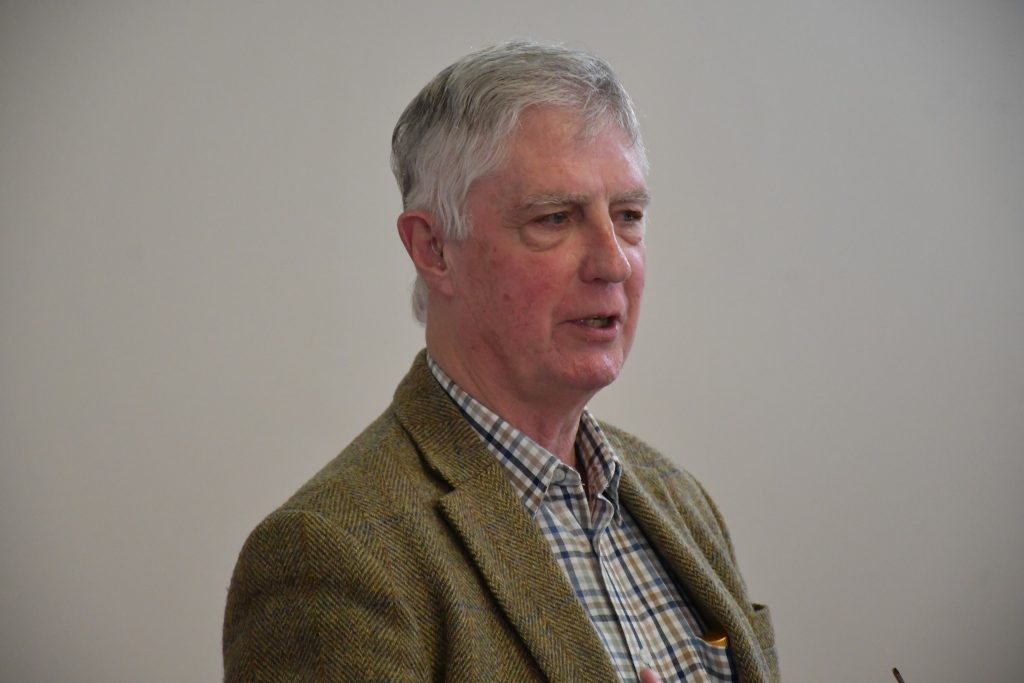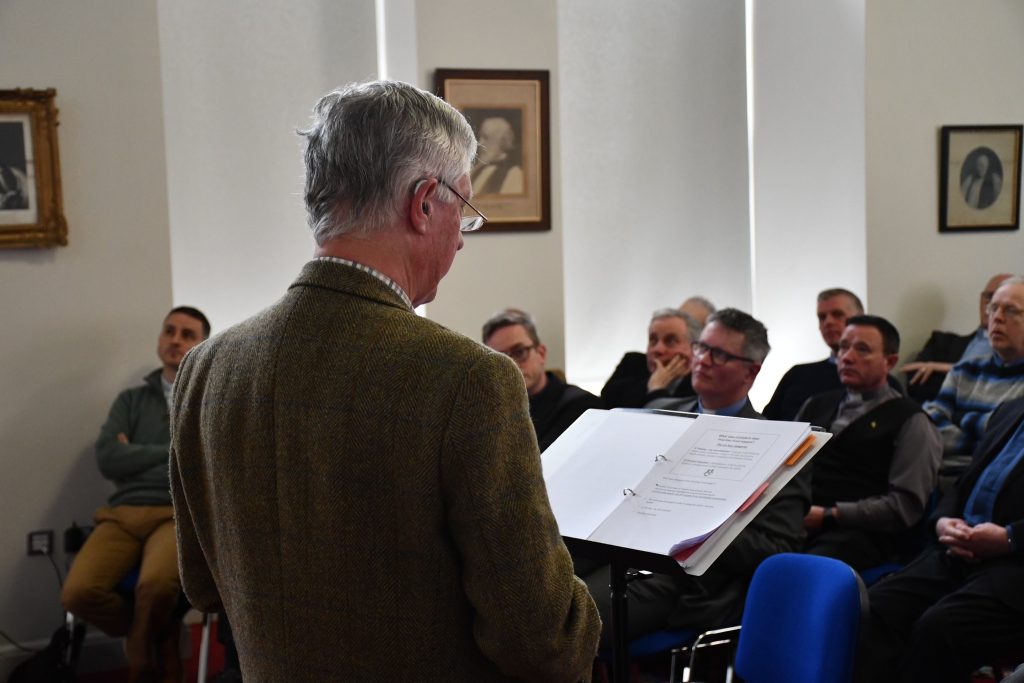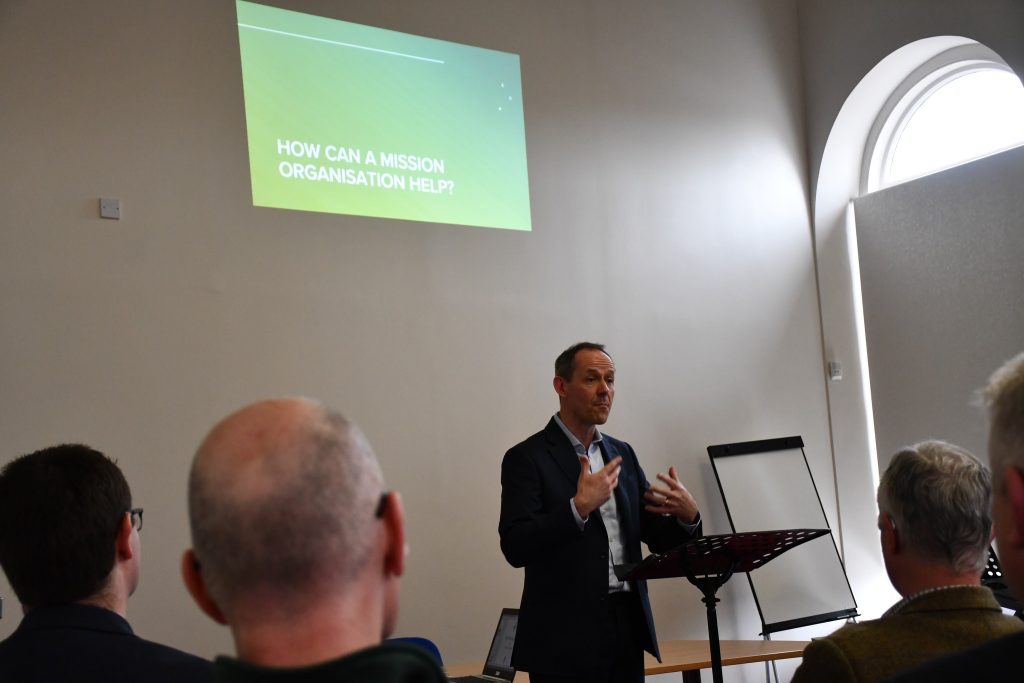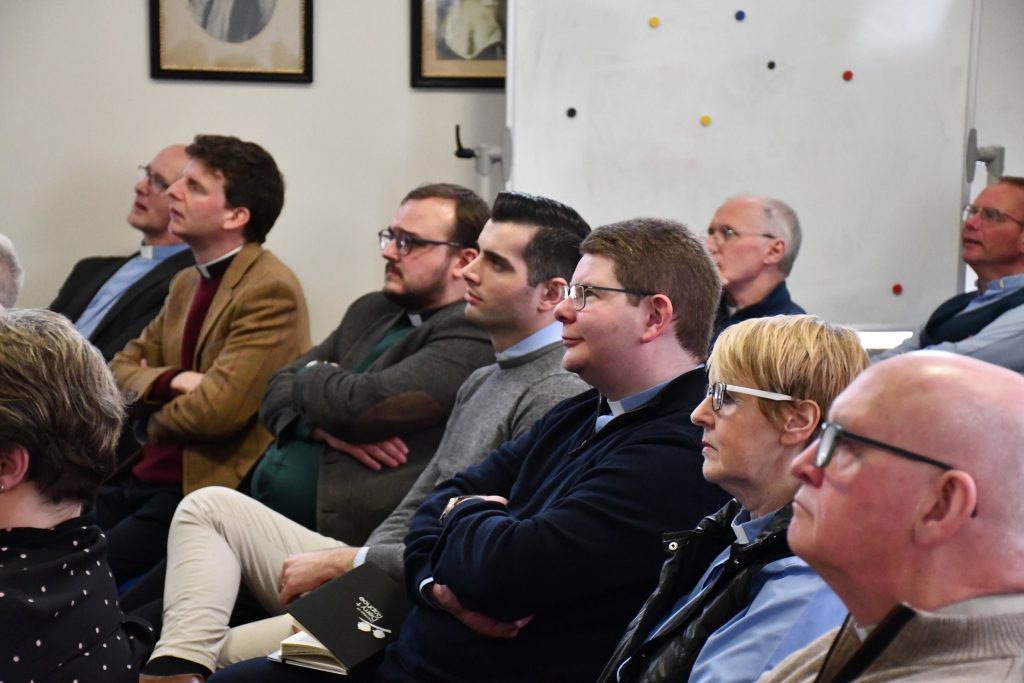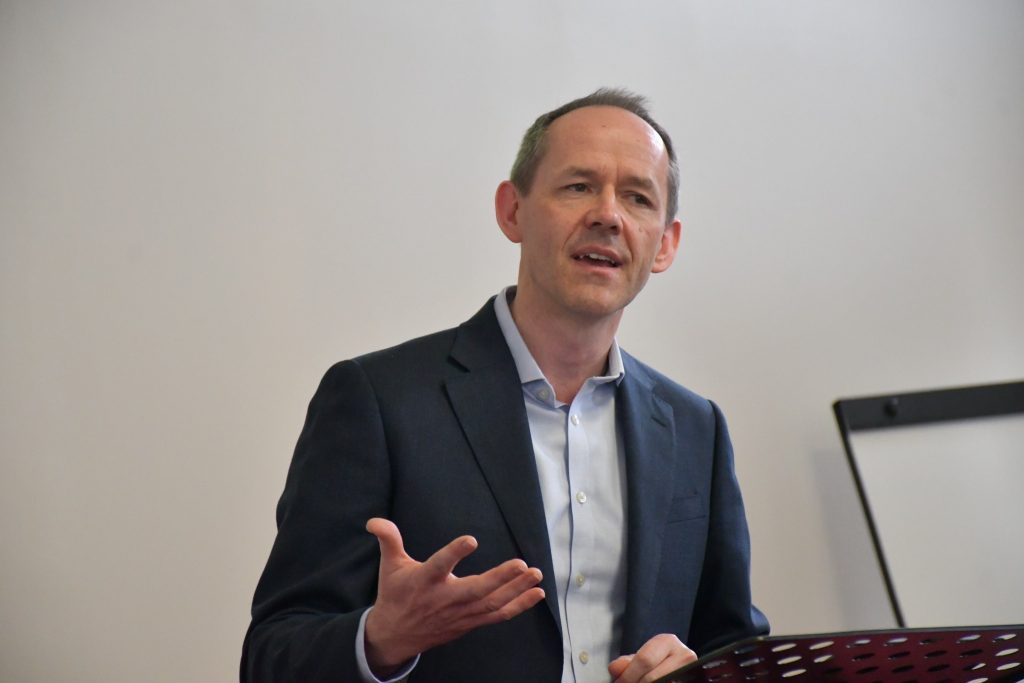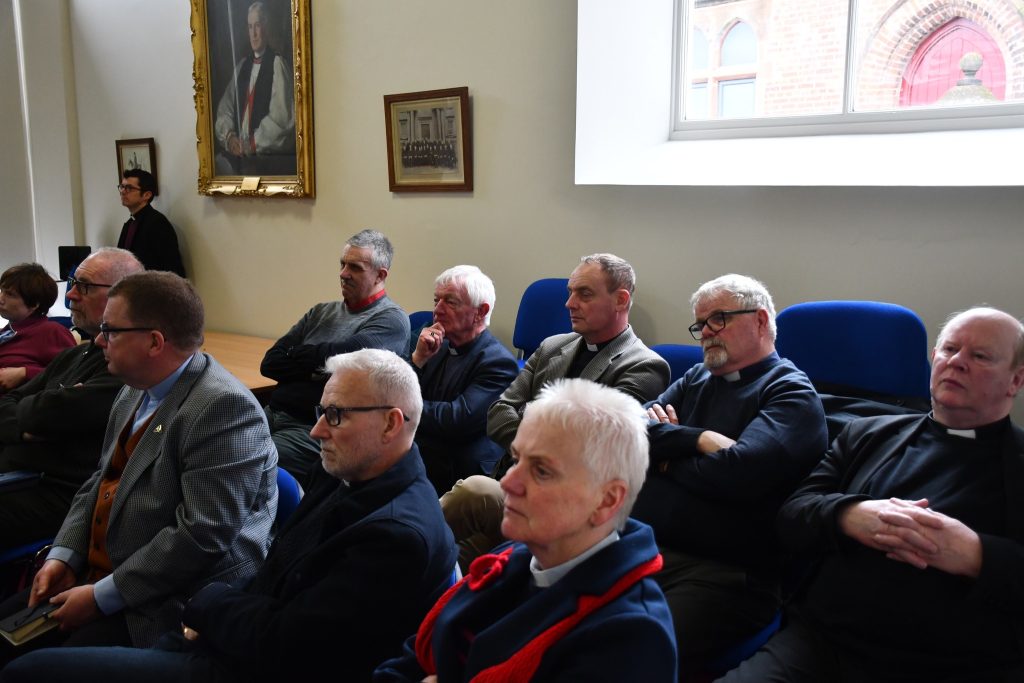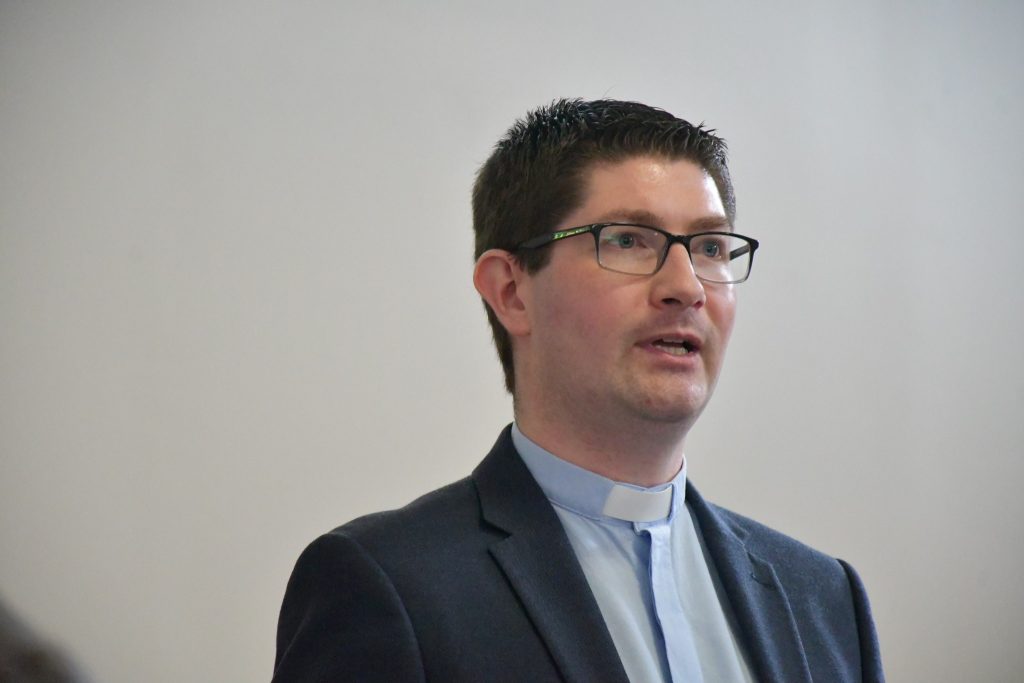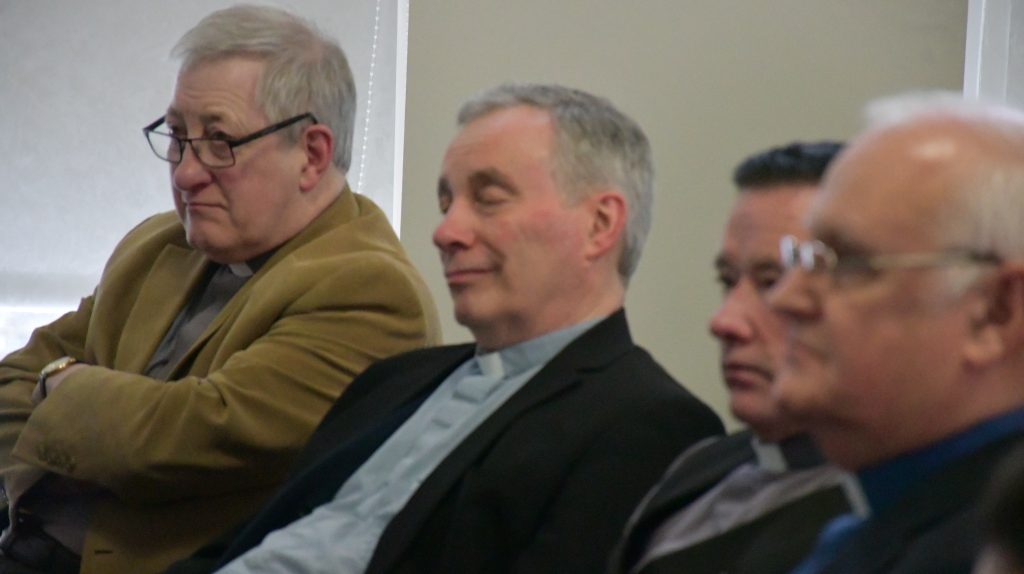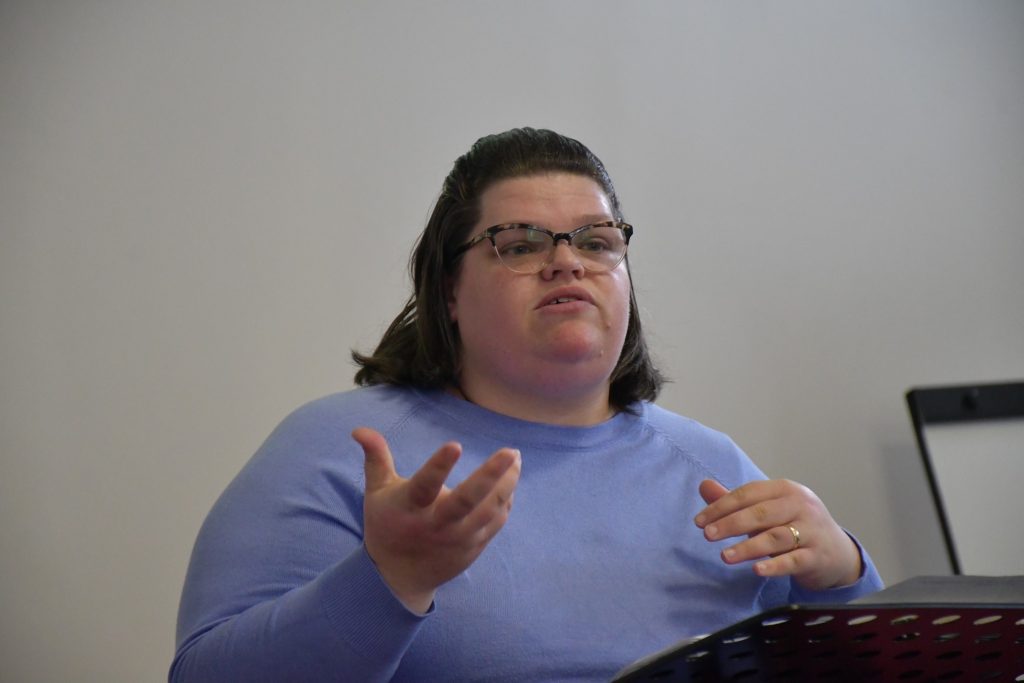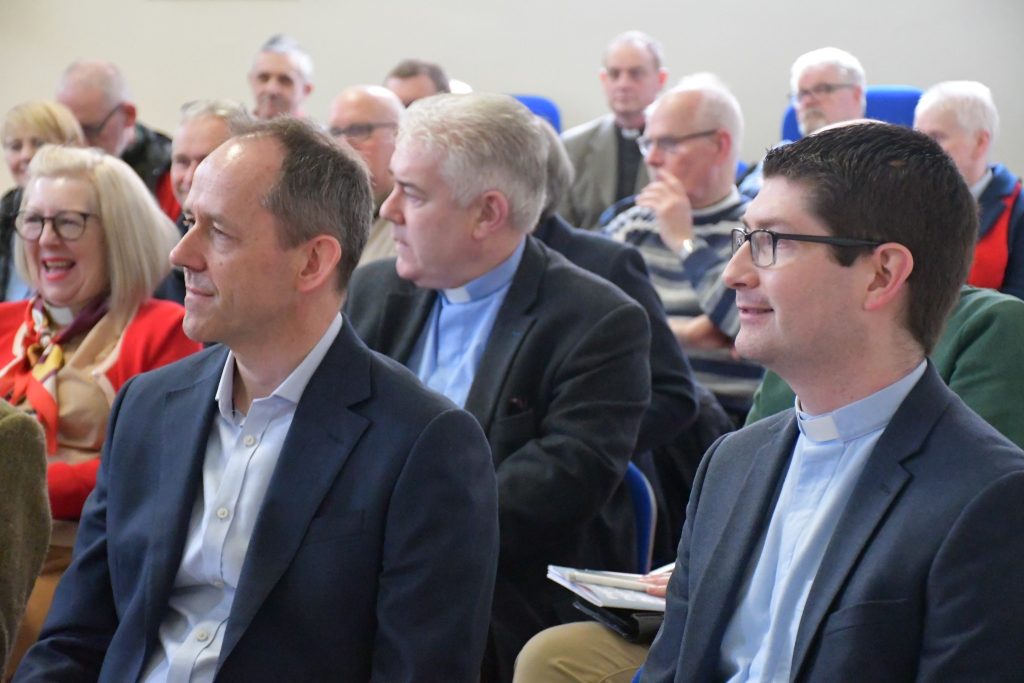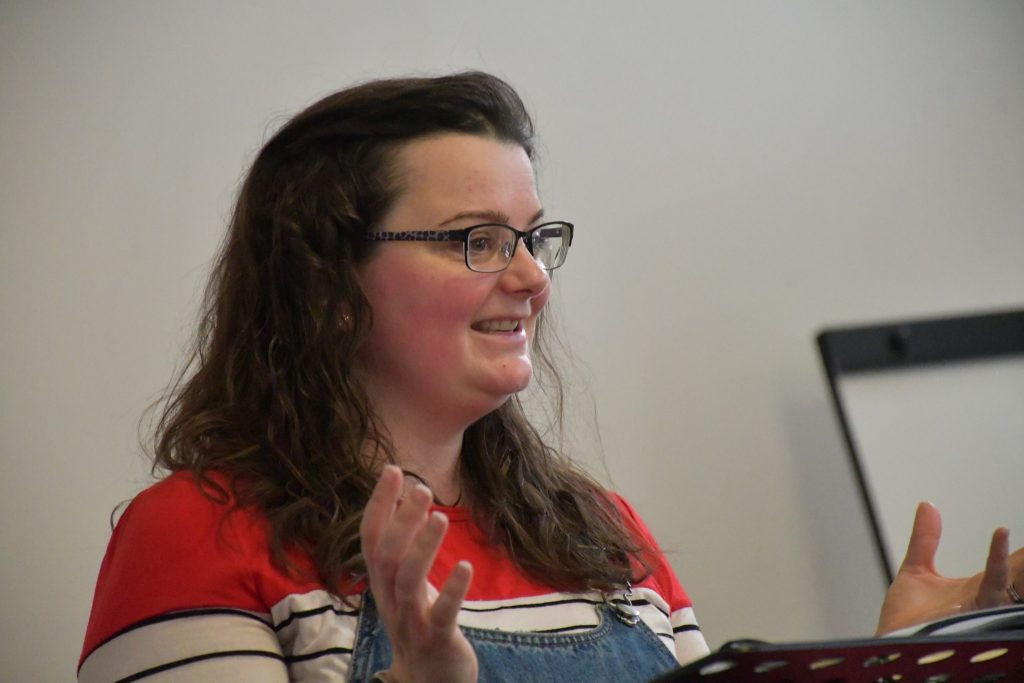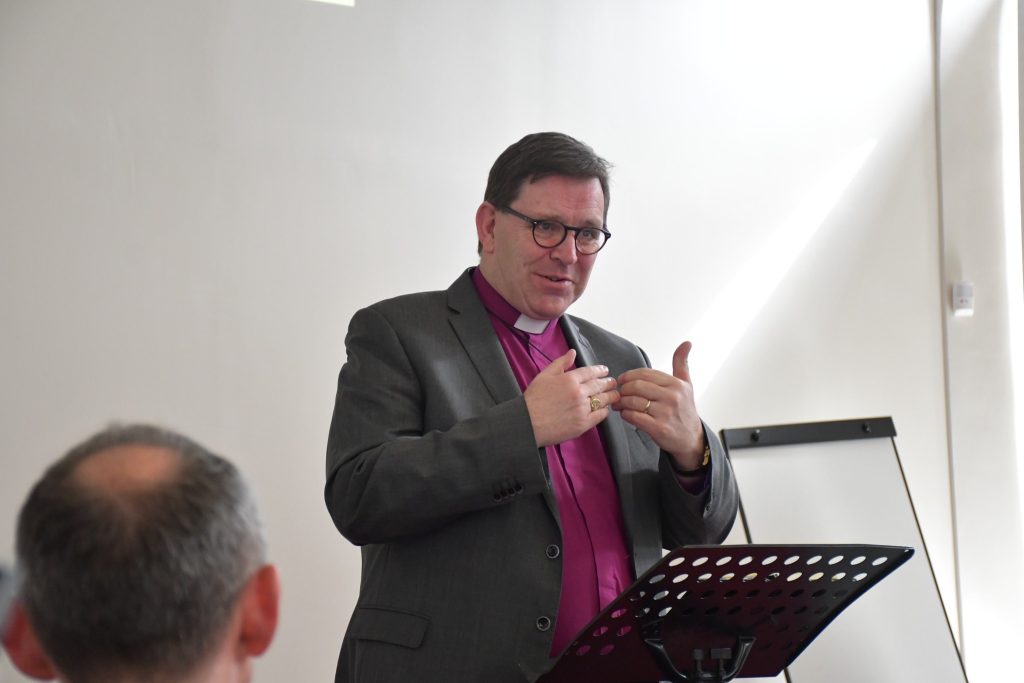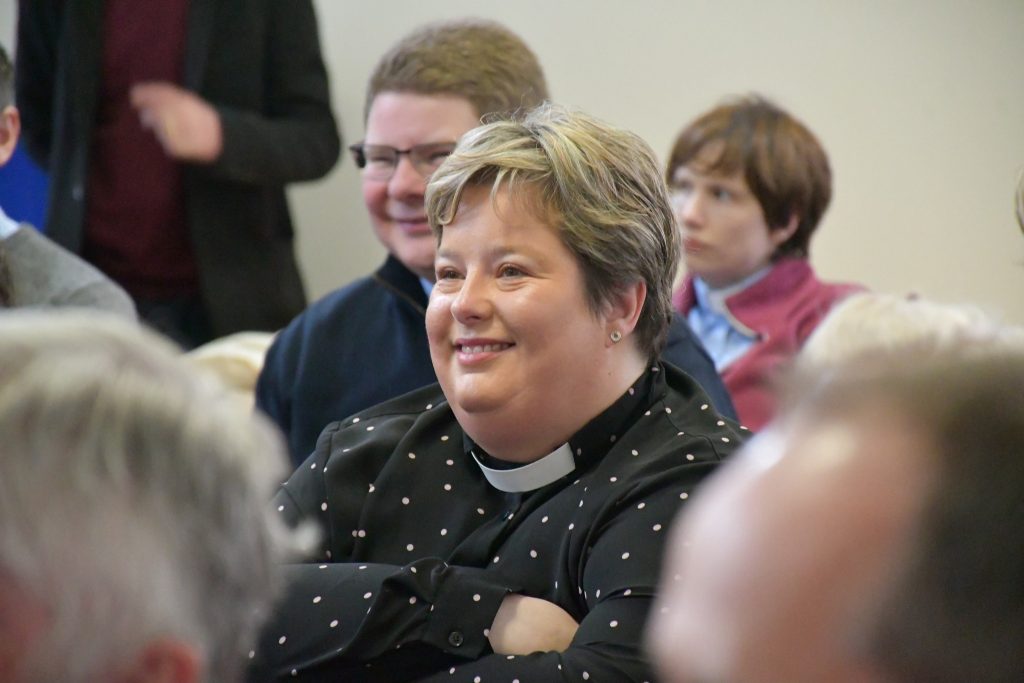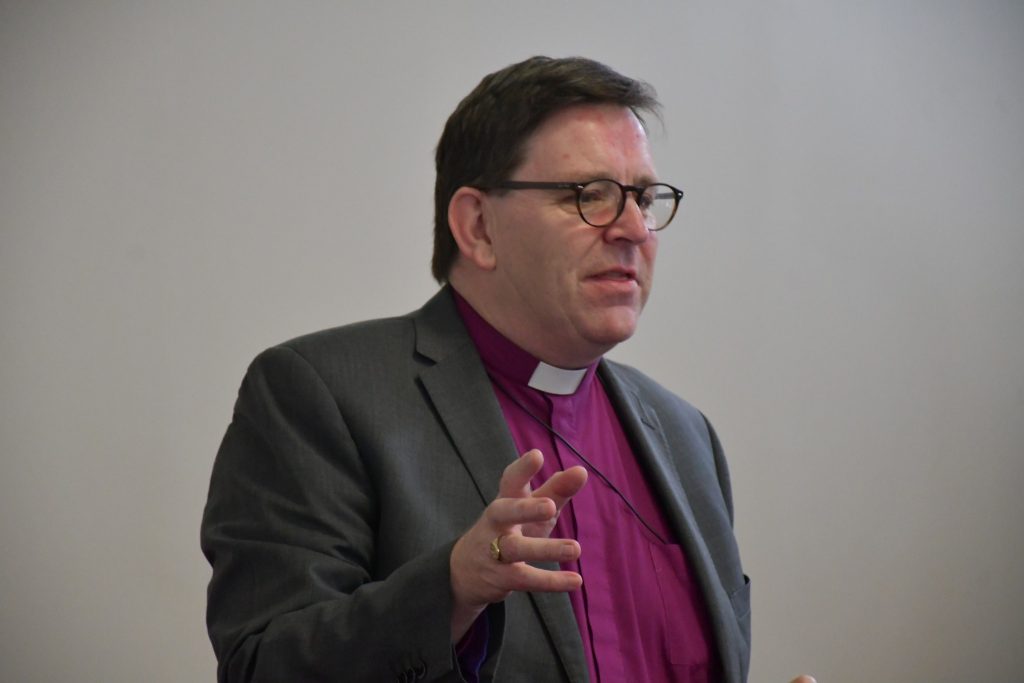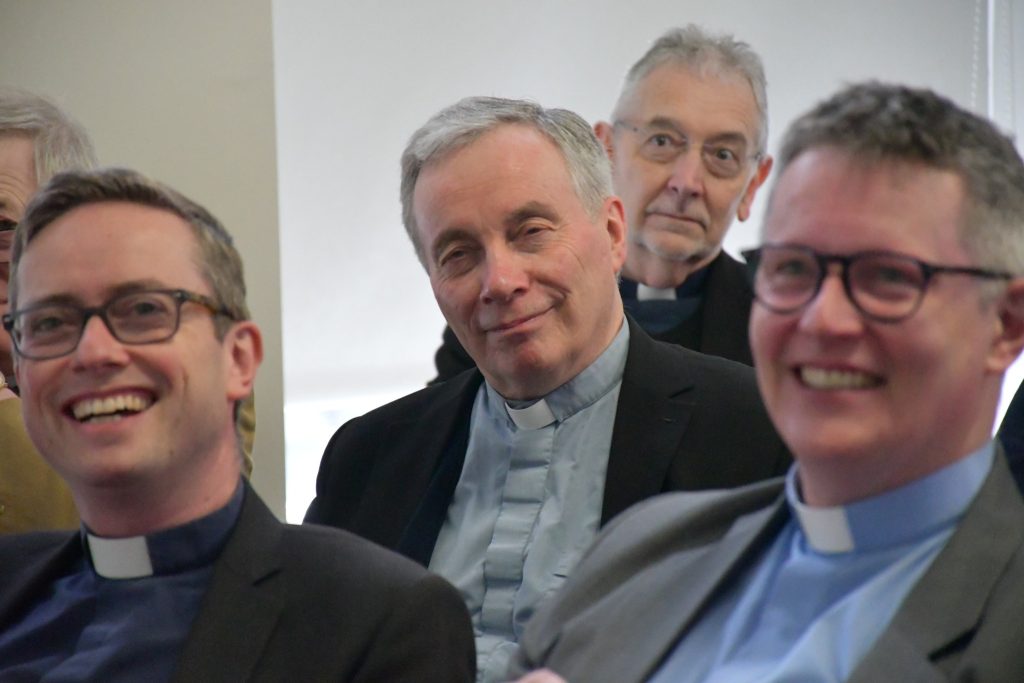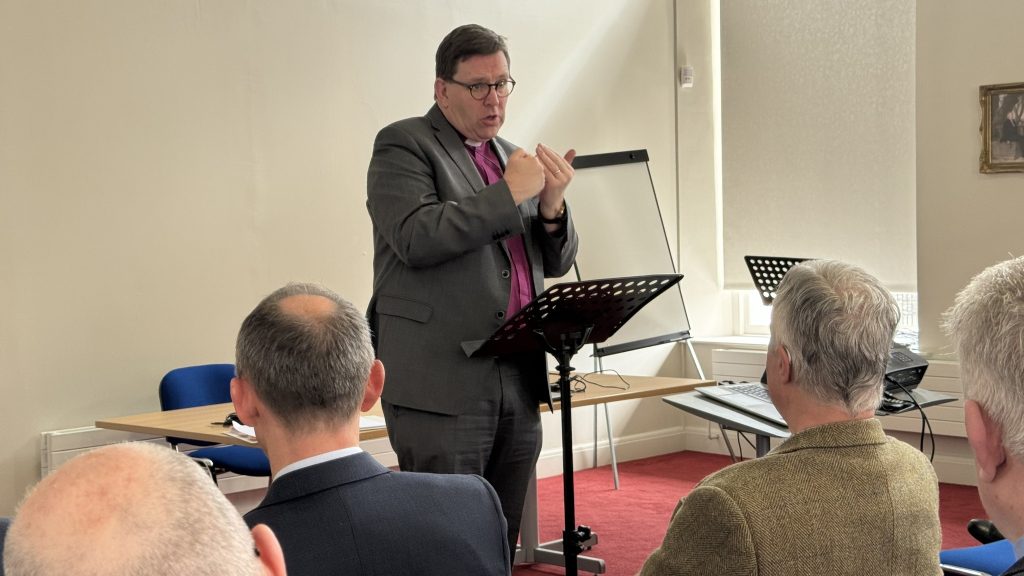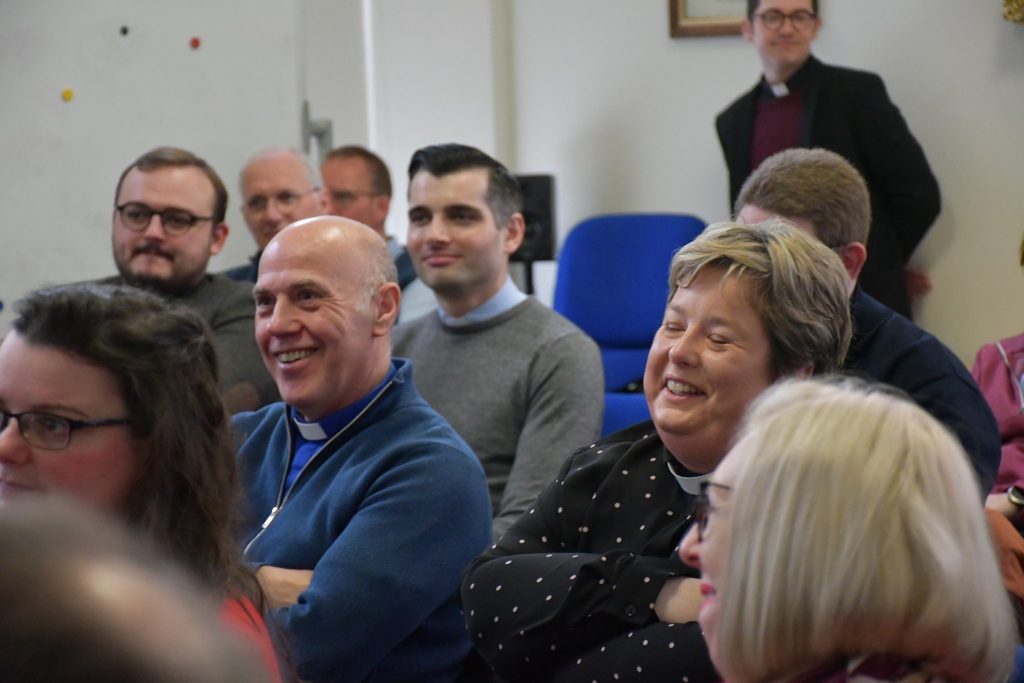Parishes in the Diocese of Derry and Raphoe have been urged to consider applying to the Church of Ireland Priorities Fund which was set up in 1980 to support areas of ministry and social responsibility which were deemed to be in need.
The fund’s chairman, Roy Totten, was invited to address clergy from right across the diocese today by Bishop Andrew Forster, who felt that parishes here could be benefitting more from it, by devising projects that met the fund’s objectives and could draw down financial support. Mr Totten told the meeting in the Diocesan Centre that, since it was set up, the fund had allocated more than £21m in grants to parishes right across the church.
When it was first established, he said, the priority in the Church of Ireland was “spiritual and not material – in other words people and not buildings. We’re really keen to help you to reach out to people.”
Mr Totten explained how the fund operated. It was supported by “generous giving” in parishes in every diocese of the church. The committee then had “the responsibility and the privilege” of redistributing that money to projects which met certain criteria, to the tune of between £500,000 and £600,000 a year.
“Finances are focused on projects which help congregations to grow spiritually and to connect with people outside your worshipping communities,” he explained. There were four categories: training – lay and ordained; Christian education (to develop RE in schools, support children’s ministry and provide Christian education for adults); outreach initiatives – to encourage new and creative projects, including church plants and missional areas; and innovative ministry in a rural context, to encourage projects in sparsely populated areas, in rural or village settings.
Around half of the applications for funding fell within the ‘outreach initiatives’ category. “What we won’t do is pay a salary,” he said, “but if it’s something that is new within your parish and reaches people, we are willing to help with it. Grants can be for a two-year period but one thing you’ve got to understand is that we do not provide continuous funding for projects.”
Mr Totten encouraged parishes in sparsely populated areas consider starting projects that fell within the ‘innovative ministry in a rural context’ category. “We to find new forms of ministry that connect with rural communities,” he said.
Parishes were advised to visit the Priorities Fund website – https://priorities.ireland.anglican.org – for more information. Applications for support are open from April until the end of October, and the committee then spends four months deciding which projects to support.
Clergy also heard about the benefits for parishes of engaging in global mission partnerships with dioceses in other countries. They heard a presentation from Crosslinks’ Mission Director, John McLernon, and its Ireland Team Leader, Richard Balmer, about some of the missionary work they do in more than 30 countries around the world.
